Living in such a special environment as Antarctica, you can imagine that our resources are scanty and the need to plan carefully what we consume is inexorable. What is more, Antarctica is unique as a continent considering the internationally agreed legislation that governs it; laws exist that prohibit bearing arms or introducing new animal species that could imbalance the local ecosystem, and call for particular waste management. In fact, Antarctica is a continent devoted to preservation of the environment, scientific research and peaceful co-existence and it was a wise choice on behalf of humanity to render it thus. Having briefly worked for Greenpeace in the past and sharing its vision for a world with excellent future prospects (rather than a dismal tomorrow), these principles attracted me when I began to expand my knowledge about Antarctica.
In accordance with international law, all waste produced in Antarctica must be transferred outside the continent, back to the country whose citizens created it. For this reason we always separate paper, aluminum, steel, glass and plastic when we throw something away in our everyday life at the Station. These are loaded on containers that traverse 1,100 km through the continent to end up at the Antarctic coast and are then carried by ship to Australia or Europe, where they are recycled.
In order to reduce the volume of organic waste, a biological disintegrator was installed at Concordia Station. This elegant solution exploits bacteria’s capability to digest organic waste, vastly decreasing its mass.
Other than metal, plastic, paper and glass, we recycle… water! That’s right, sophisticated equipment co-developed by ESA is operated a few times a week at Concordia Station to filter, clean and re-use the water available for showering and washing our clothes or the dishes or even the floors. This machinery is not too different than what is used on the International Space Station. But why bother to recycle water since you have so much ice around? Well, first of all, according to the Antarctic Treaty, waste water must be carried off Antarctica for disposal, so recycling saves a lot of resources. Secondly, melting the ice from outside to turn it into drinkable water is not easy. We only have one vehicle to excavate and put the ice in our melter. Should that one fail, we can either use recycled water or dig with our bare hands! Trust me, digging at -75 degrees Celsius is not a dreamy experience, so I am really glad we have this safer back-up option. Lastly the quality of the machine’s filtering is tested constantly. With a few improvements, the technology and know-how will be mature to be used in other environments. Morocco is already testing the same technology from ESA to provide and recycle water at one of its regions that is poor in hydration.
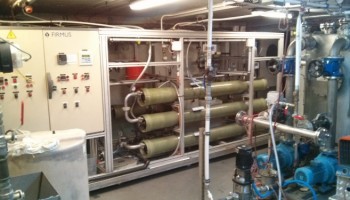
The Grey Water Recycling Unit at Concordia Station. Can you count the filters? Credits: ESA/IPEV/PNRA-A. Golemis
There is also a big effort to be efficient as far as energy consumption is concerned. In our case, sadly, Concordia Station cannot depend unilaterally on reusable forms of energy: On the plateau of Dome Circe, where our base is situated, there is hardly any wind and use of solar power is impossible during the winter, when the sun does not rise above the horizon. As you can imagine, there are also no streams to provide for hydroelectric power.
Despite the fact that we rely on traditional energy production, we do our best with regards to efficiency. The two towers of our base are round, since it is easier to heat them in this way using less fuel. Energy consumption is closely monitored and adjusted – and we all try to be reasonable in our needs and careful in our everyday activities. No unnecessary devices must be switched on, no lights when we all go to sleep. The external scientific shelters are only heated up to 10 degrees Celsius, not more, since they are not used every day.
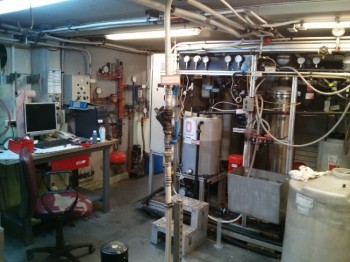
The Grey Water Recycling Unit at Concordia Station. Can you count the filters? Credits: ESA/IPEV/PNRA-A. Golemis
Laundry should be done only when there are enough clothes to fill the machine. These might seem like trivial rules that a lot of people also apply to their homes in order to reduce their electricity bill – yet here they have much more serious implications hanging over us. Efficiency is not just about paying less to our electricity provider in Europe or surviving with just enough fuel in Antarctica for a year. There are far more important goals to be achieved: preservation of our climate as we know it (and like it) around the globe, reducing global warming, and bequeathing a healthy planet for the next generations.
I sincerely hope that in the future, Antarctic Stations will become even more environmentally friendly. Perhaps it is only fair that the wind of change starts to blow from here, from the continent most prone to environmental disasters due to the melting of ice and the ozone hole, which lies directly above us. An interesting fact is that our remote Station is built upon 3233m of ice, there is no solid ground beneath us. Think about it, should human activity and air pollution continue unaltered, global warming would thwart the ice shelves and Concordia Station would be afloat amidst the waves while our homes in Europe would probably be below the new, elevated, sea level!
In general, though, Antarctic Stations already operate at a high standard as far as caring about the environment and its resources are concerned. It is time for the rest of the globe to follow. Being a doctor, one of my favourite quotes comes from Desiderius Erasmus: “prevention is the best cure”. Instead of continuing to accumulate waste and misuse the resources of our planet, which will inevitably lead us soon to harsh situations requiring a “cure”, we must for the first time perhaps try to be insightful and think in the long term: recycle what we can, preserve what we must, utilize clean energy and invest in sustainable development. Yes, the investment is greater and more difficult – but it will pay us back many times in the end.
On Thursday, June 5, it is the international celebration for the World Environment Day (WED). ESA is participating actively in an event named “Raise your voice, not the sea level!”. A live interview by ESA Astronaut Alexander Gerst will be conducted from space on the matter.
The 5th of June can be a good reminder on how to become more responsible with respect to the environment in the daily activities, all of us. Please think of our tiny home in Antarctica, in danger of sinking beyond the sea should our current mentality of greed and disposal rather than reuse not change for the better! And remember – great changes rise from small efforts done by many of us, on a constant basis. Let’s stand up to the challenge of our times. ҉

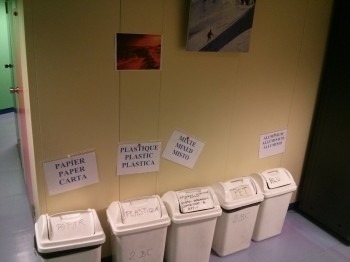
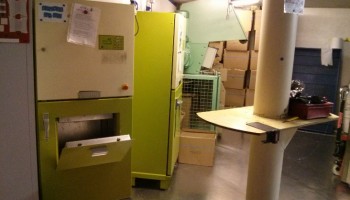
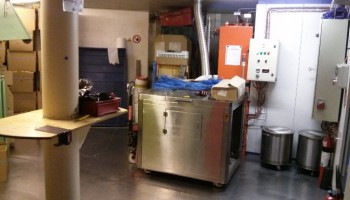
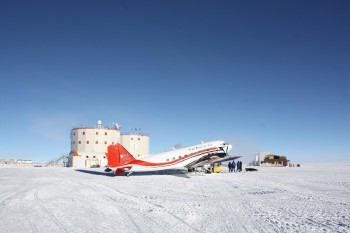
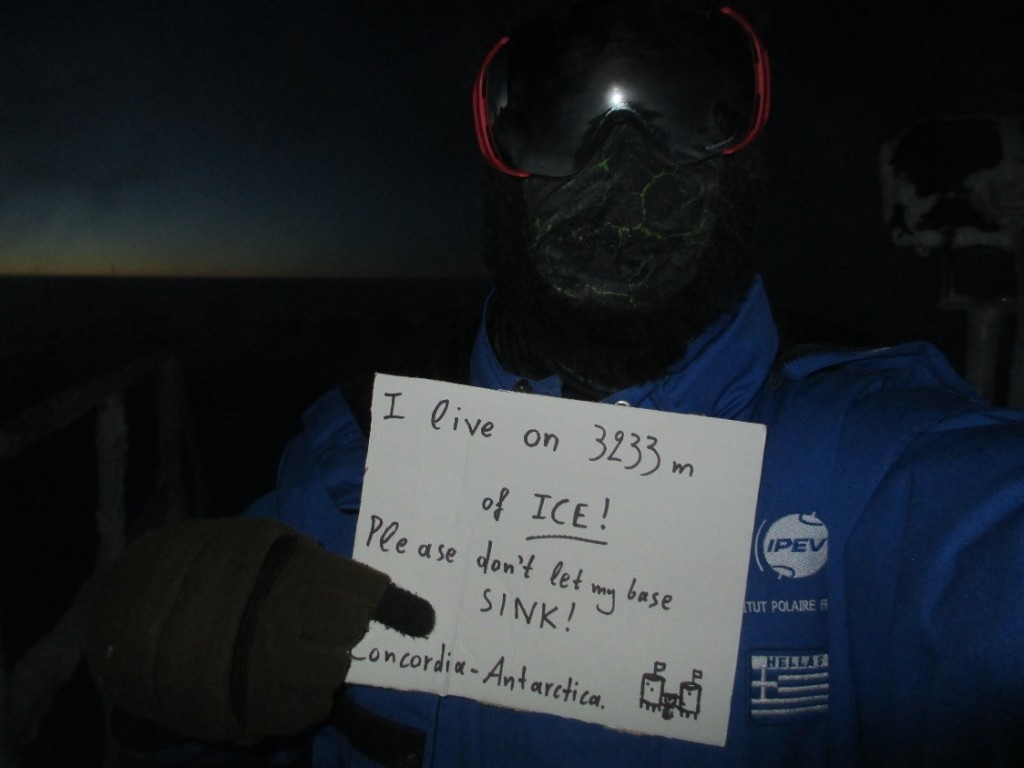


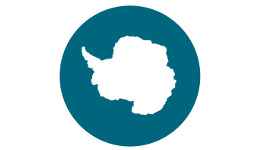
Discussion: no comments